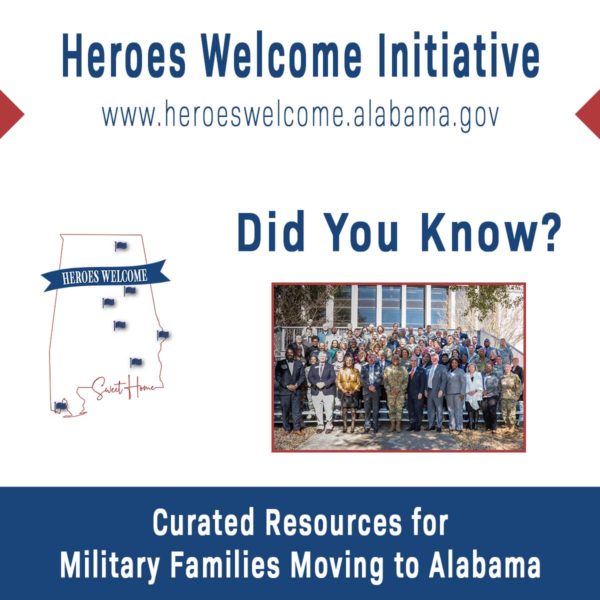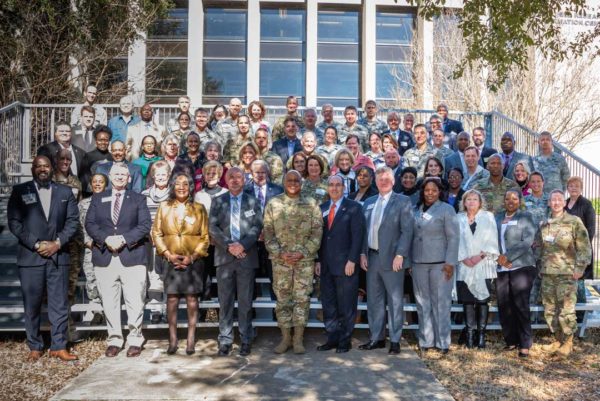 Military quality of life is an important readiness issue at every level, from the Department of Defense to individual Installations, and especially for military families. Quality education for military-connected students is of paramount importance, not only to the students and their parents, but to Force Readiness overall. Installations are stepping up and partnering with their Defense Communities to help ensure military-connected students have a variety of quality options available as they PCS across the Country.
Military quality of life is an important readiness issue at every level, from the Department of Defense to individual Installations, and especially for military families. Quality education for military-connected students is of paramount importance, not only to the students and their parents, but to Force Readiness overall. Installations are stepping up and partnering with their Defense Communities to help ensure military-connected students have a variety of quality options available as they PCS across the Country.
In a recent article published in the Air Force Sergeants Association Magazine, Lt Col Christina Karvwnaris (AU/PA) and CMSgt Michael Morgan (42d ABW/CCC) of, addressed the issue of education and communication, and the importance of the School Liaison Officer in helping to bridge the gap for families moving to new duty stations. They stated that, “[m]any school districts are unaware of the challenges that can arise for military families as they move from base to base…” Further, when military families move, they are not just comparing schools or districts to other local communities, but often to those in other states and around the world.
Karvwnaris and Morgan point out that one of the most valuable resources for a military family with school-aged children is the School Liaison Officer (SLO). The SLO provides a direct line of communication between those families and local area schools.
Maxwell-Gunter Air Force Base in Montgomery, Alabama, has grown a solid relationship with its surrounding Defense Community (including four (4) schools districts), also known as the River Region, to improve opportunities for military students and communication with local schools. The driving force in this mission is the Air University’s Public K-12 Education Working Group, created just two (2) years ago. The SLO has played an integral role in this effort, helping the school districts to “understand that while our children attend school alongside our community partners, their backgrounds and needs can be different. Our school districts now have a better understanding of what it means to be a military child.” Another important piece to bridging the civilian-military divide has been “the standpoint that what is good for military children is good for all children.”
The K-12 Working Group established three levels of engagement:
- local partners and stakeholders
- higher education institutions and leaders
- the Alabama State Department of Education (ALSDE)
“Elevating our relationship to the state level has also ensured other installations in Alabama benefit from our efforts and has increased our stakeholder network. In fact, the ALSDE POC’s favorite new slogan is “Call the SLO Before You Go!”
The Working Group has also engaged more critical partners, including the Alabama Military Interstate Children’s Compact Commissioner, the Alabama Military Stability Foundation, and the Alabama Jobs Creations and Military Stability Commission. Beyond Alabama, they have also partnered with the Military Child Education Coalition (MCEC) for “support, resources, and network connection to other installations on a similar journey.”
Karvwnaris, Morgan, and the entire K-12 Working Group highly recommend that Installations work with their “community partners and create options that bolster educational opportunities through community engagement and support.”
Visit Air University’s Facebook page to read the full article in the Air Force Sergeants Association Magazine (p16-19) and to learn more about how community connections are bettering education opportunities for military-connected students in the River Region.
Pictured below: The Air University K-12 Summit in January 2019 brought over 80 leaders from the River Region together, including the four local superintendents. The keynote speaker was Dr. Eric Mackey, the Alabama State Superintendent.

